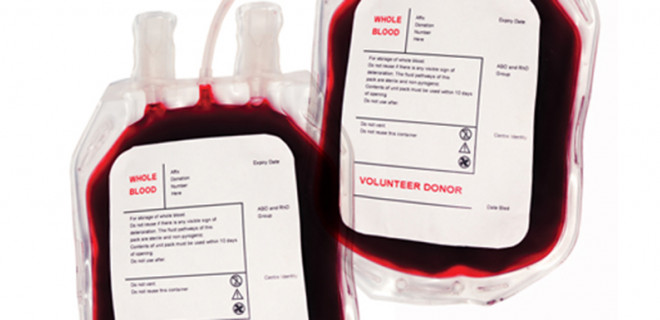The Government has announced the removal of a discriminatory blood donation restriction in England that predominantly prevents Black people from donating blood and plasma.
The change relates to the three-month deferral period for anyone who has ‘had sex with someone who may ever have had sex in parts of the world where HIV/AIDS is common’, which will now be removed.
This follows changes to a more individualised risk assessment for blood donation back in June. The question was removed as part of those changes in Scotland and Wales, but was retained in England – against the evidence and recommendation of two expert groups.
Chamut Kifetew, Health Equalities Lead at Terrence Higgins Trust, said: ‘We called for change and now change is coming. This decision means more people, particularly those of African heritage, will be able to safely donate much-needed blood products in England. It is based on the latest evidence to preserve the safety of the blood supply, helps maximise the number of potential donors and brings England in line with Scotland and Wales.
‘The removal of the question is particularly important as it eliminates one of the key barriers which has until now played a role in preventing the recruitment of more donors from Black communities. This momentum must be maintained as we urgently need more work done to address wider health inequalities faced by Black people in the UK.’
Further background
The findings of a review of blood donation criteria by the independent FAIR (For the Assessment of Individualised Risk) group was announced in June. It recommended a move to a more individualised risk assessment focusing on behaviours rather than blanket bans.
This led to several UK-wide changes including the removal of the three-month deferral period for gay and bisexual men wanting to donate. But, while the question regarding sex with someone in parts of the world where HIV is common was removed in Scotland and Wales over the summer, it was retained in England.
The Government’s own independent advisory group on blood SaBTO (Advisory Committee on the Safety of Blood, Tissues and Organs) also supported the question’s removal based on the latest evidence.
In June we joined National AIDS Trust and One Voice Network to write to then health secretary Matt Hancock to urge the Department of Health and Social Care to make an evidence-based decision and remove the deferral period in England.
In September, Shadow Minister for Women and Equalities Taiwo Owatemi and Sarah Owen, who sits on the Health Select Committee, wrote to the now health secretary Sajid Javid to urge action on the discriminatory restriction.
Now the Department of Health and Social Care has made the decision to remove the question.



